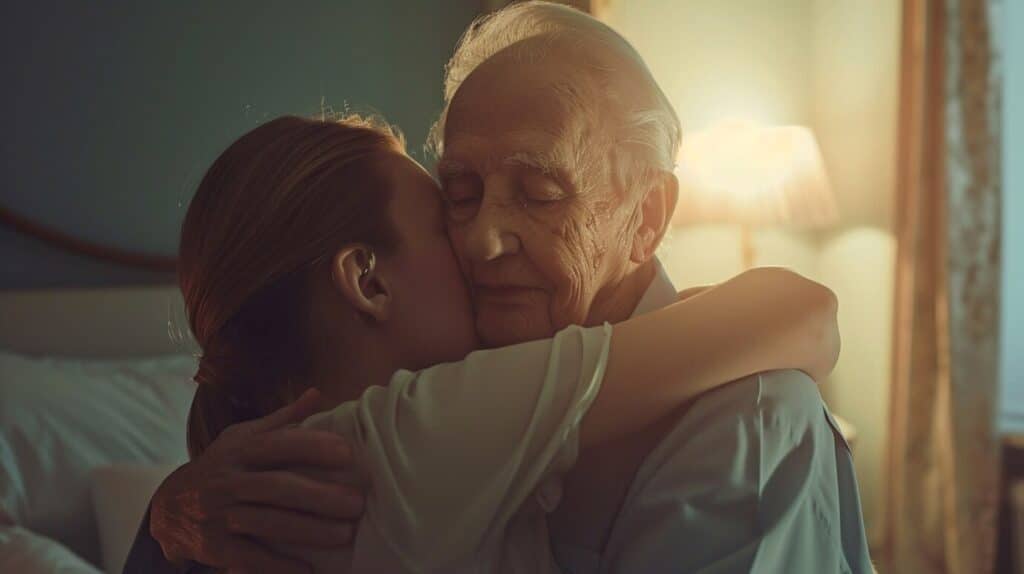Can Trauma Cause Memory Loss? What You Should Know
Trauma doesn’t just leave emotional scars—it can affect how the brain stores and retrieves information. One of the most common yet misunderstood symptoms is memory loss. But can trauma cause memory loss? The answer is yes, and it’s often a direct result of the brain’s protective mechanisms. When you experience something deeply distressing, your brain might suppress or fragment those memories to shield you from pain.
This phenomenon isn’t rare. From childhood trauma and memory loss to adult experiences of complex PTSD and memory loss, the relationship between trauma and memory disruption is well-documented. Fortunately, therapies and support systems can help you reclaim your memory and emotional health. At Westmont of Pinole, compassionate care is available to guide you through recovery.
How Trauma Affects the Brain and Memory
Trauma changes how the brain processes and stores memories. When exposed to extreme stress, the amygdala, hippocampus, and prefrontal cortex react in a way that can suppress or distort memory. This is especially prevalent in individuals with complex PTSD and memory loss, where recurring trauma makes long-term memory retrieval more difficult.
In many cases, dissociative amnesia is a key feature, where people are unable to recall important personal details, usually related to the traumatic event. This form of memory loss isn’t caused by brain injury, but rather by emotional overwhelm and psychological defense mechanisms.
Understanding these neurological changes—such as neuroplasticity and altered memory pathways—is vital for developing recovery plans. For more on related conditions, read about depression and memory loss and how they can exacerbate trauma symptoms.
Types of Trauma That Impact Memory
Not all trauma is the same. Some forms have a more profound impact on memory, especially when they occur during formative years. For example:
- Childhood trauma and memory loss often coexist, as the developing brain is highly vulnerable.
- Emotional trauma from betrayal or neglect can create memory fragmentation.
- Physical trauma, like car accidents, can lead to dissociative amnesia or repression.
Even seemingly minor traumatic experiences can result in memory gaps, depending on an individual’s emotional resilience. Trauma experienced early in life may also alter the formation and storage of memories, affecting adult cognitive function.
Community environments like Westmont of Chico emphasize holistic healing, especially for seniors dealing with late-life trauma.
Signs and Symptoms of Trauma-Related Memory Loss
Recognizing the symptoms of trauma-related memory issues is the first step toward healing. You may experience:
- Difficulty recalling specific life events.
- Emotional numbing or a disconnect from past experiences.
- Dissociative amnesia affects both short- and long-term memory.
Symptoms may also include panic attacks, nightmares, or flashbacks. These responses are common in those with complex PTSD and memory loss, and they often interfere with daily functioning. Some individuals report feeling like their memories belong to someone else or that they’re viewing them from outside their body—a key sign of dissociation.
Anxiety and depression can further impact memory. Explore how anxiety affects memory to understand the interconnectedness of these conditions better.

Can Memory Loss from Trauma Be Reversed?
Can memory loss from trauma be reversed? The good news is, yes—at least partially. While some memories may remain inaccessible, therapeutic techniques can help retrieve or work around them.
How to fix memory loss from trauma often involves the following:
- Emotional safety: A secure environment encourages memory retrieval.
- Therapeutic recall: Professionals guide you through past events.
- Cognitive restructuring: Reframes your narrative to reduce emotional weight.
According to mental health experts, neuroplasticity allows the brain to form new pathways. This means that with effort and guidance, healing is possible. While complete reversal isn’t always guaranteed, managing symptoms and improving memory function is achievable with time and support.
Effective Therapies for Trauma and Memory
Therapy is a crucial component in treating trauma-related memory loss. Modalities such as:
- Cognitive Behavioral Therapy (CBT): Helps reframe negative thought patterns.
- EMDR (Eye Movement Desensitization and Reprocessing): Especially helpful for complex PTSD and memory loss.
- Dialectical Behavior Therapy (DBT): Improves emotional regulation and stress response.
- Trauma-informed yoga and mindfulness: Support emotional release and mental clarity.
These methods are especially effedctive in individuals dealing with childhood trauma and memory loss, as they address early emotional wounds. Supportive communities like Lakeview Senior Living offer access to both therapy and a compassionate environment, which is key for sustained healing.
Steps to Fix Memory Loss from Trauma
Wondering how to fix memory loss from trauma? These steps can guide you toward recovery:
- Seek professional diagnosis: Identify whether the memory loss is trauma-related or stems from another condition.
- Establish emotional safety: Secure surroundings are essential for opening up suppressed memories.
- Engage in therapy: Consistent counseling using proven methods like EMDR or CBT is vital.
- Journaling: Keeping a memory journal may help fill in the blanks.
- Use of memory aids: Visual timelines or voice recordings can aid recollection.
If you’re dealing with dissociative amnesia, patience is key. Recovery doesn’t always follow a straight line, and there will be ups and downs. But with persistence, memory gaps often shrink, and emotional resilience grows.

Community Resources and Continued Care
Recovery doesn’t happen in isolation. Community support plays a huge role in healing from trauma-related memory loss. At Westmont of Pinole, residents benefit from:
- Personalized memory care programs.
- Therapeutic recreational activities.
- On-site licensed counselors are familiar with trauma care.
- Secure and structured environments that promote safety and trust.
Looking for more resources? These articles provide valuable insights:
- Psychology Today: Understanding Dissociative Amnesia
- NIMH: PTSD Basics
A Brighter Future: Rebuilding After Trauma
Can trauma cause memory loss? Absolutely—but it doesn’t mean your story ends there. With the right care, therapy, and support systems, people can heal, grow, and recover lost pieces of their identity. Whether you’re facing childhood trauma and memory loss, dissociative amnesia, or wondering if memory loss from trauma can be reversed, know that help is available.
At Westmont of Pinole, we are dedicated to supporting you through every stage of recovery. If you or a loved one is seeking answers or support, reach out to us at 510-758-1122 or schedule a tour today. Healing begins with one brave step—and you don’t have to take it alone.
How Do The Costs Of Moving Into A Quality Senior Care Community Compare With The Costs Of Staying At Home?Compare The Costs of Senior Living vs Staying at Home
Frequently Asked Questions About Trauma and Memory Loss
What kind of trauma causes memory loss?
Memory loss can result from both physical and emotional trauma. Emotional trauma, such as abuse, neglect, or witnessing a traumatic event, may lead to dissociative amnesia, where the brain blocks out specific memories. Physical trauma, including concussions or brain injuries, can damage areas responsible for memory storage. In both cases, the brain protects itself by limiting access to painful or overwhelming experiences.
Can the brain heal itself after emotional trauma?
Yes, the brain can begin to heal itself after emotional trauma through neuroplasticity. This process allows the brain to form new neural connections and pathways, especially with the support of therapy, mindfulness practices, and a stable environment. Recovery times vary based on the individual and the severity of the trauma. While complete recovery may not always be possible, significant improvement is often achievable.
How to get your memory back after trauma?
Recovering memory after trauma involves a combination of therapeutic methods such as cognitive behavioral therapy (CBT), EMDR (Eye Movement Desensitization and Reprocessing), and memory-strengthening exercises. Maintaining a consistent routine, reducing stress, and engaging in memory games or journaling can also help. Support from trained professionals is key to safely navigating repressed or fragmented memories. Patience and persistence play an important role in the healing process.
Can trauma cause brain fog?
Yes, trauma can lead to brain fog, a condition marked by confusion, difficulty concentrating, and forgetfulness. Emotional and psychological stress impact the brain’s ability to function clearly, often due to heightened cortisol levels. Sleep disturbances, anxiety, and depression, commonly associated with trauma, can also contribute to cognitive fatigue. Managing stress and seeking professional help can reduce symptoms over time.








